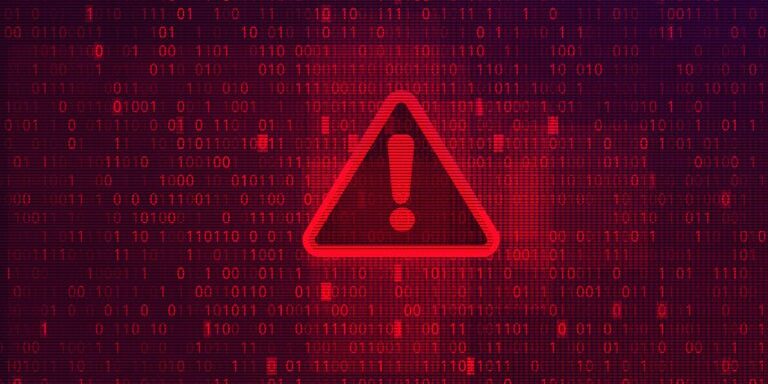A SOC 2 Type 2 Compliant and NIST CSF Knowledgeable IT MSP Offers Peace of Mind

Businesses often invest in outsourcing tasks that could leave their data vulnerable in a risk-heavy online landscape. To add some perspective, Fortunly recently shared that experts anticipate the global IT outsourcing market might grow by $98 billion by 2024.
IT managed service providers (MSPs) have become invaluable partners in keeping systems, networks, and cloud hosting tasks running smoothly. As is often the case amid today’s never-ending barrage of large-scale data breaches, system security and assurance are common pain points in regard to a service organization’s internal controls.
For example, one of our engineers uncovered Personally Identifiable Information (PII) from old hard disk drives he found at a flea market.
The hard drives were originally part of a medical payment processing system and contained scanned faxes with more than enough information to steal people’s identities.
Clearly, whoever was responsible for that company’s technology did not have the hard drives wiped and destroyed. That’s how easy it is for your company’s information to end up in the wrong hands.
A best practice is to always reach out to a dedicated IT MSP to help your business grow.
With the right controls, you can protect your clients, as well as intellectual and employee information included in a service organization’s care. The American Institute of CPAs (AICPA) developed the System and Organization Controls (SOC) 2 for service organizations, and it is vital that your IT MSP has obtained SOC 2 Type 2 certification.
What Is SOC 2?
The SOC 2 is a report on controls that defines a service organization’s criteria for managing your data based on the five Trust Services Criteria (TSC):
- Security. The protection of the system and its resources against all unauthorized access could lead to the misuse of software, removal of data, and the disclosure of information.
- Availability. The minimum acceptable performance level for system availability for both parties, according to the service level agreement (SLA).
- Processing integrity. Processing integrity addresses whether the service organization’s system achieves its intended purpose while ensuring that system processing is complete, valid, accurate, timely, and authorized.
- Confidentiality. Data access remains confidential with proper restrictions for certain persons or organizations, keeping information secure and controlled.
- Privacy. Different from confidentiality, privacy refers to personally identifiable information (PII) and its appropriate collection, use, retention, disclosure, and disposal.
The AICPA developed the SOC 2 report to provide assurance regarding your IT MSP’s controls, relative to the TSC. This means you won’t need to worry about your information once you have placed it in your selected service organization’s care.
IT MSP service organizations enlist a third-party auditing firm’s services, dispatching auditors to perform an assessment and subsequent testing of all relevant controls.
What Is SOC 2 Type 2?
SOC 2 Type 2 reports, sometimes known as SOC 2 Level 2, focus on policies and procedures that cover a specified time frame. More rigorous than SOC 2 Type 1, which covers a service organization’s policies and procedures at a specified moment in time, SOC 2 Type 2 requires a minimum of six to 12 months for a system’s evaluation. These reports are the most comprehensive and useful certification within the SOC suite of services.
What Are the Benefits That Come With IT MSP SOC 2 Certification?
IT MSPs that obtain and maintain SOC 2 certification provide basic benefits that include supervision over the service organization’s controls, internal corporate governance and risk management processes, and regulatory oversight and compliance.
Additional valuable benefits:
- Allow the service organization to streamline processes and controls to enhance client services by using report data.
- Catch any gaps in the control framework and make corrections before any adverse incidents can occur.
- Distinguish the IT MSP from competitors, providing proof of SOC 2 Type 2 assurance to prospective clients.
- Provide clients with a report that focuses on internal controls unrelated to those regarding financial reporting.
Why Is It Important That Your IT MSP Offer NIST Framework Guidance?
As the federal government increasingly works with non-governmental organizations and private businesses to achieve certain tasks, embark on special projects, and acquire knowledge, various entities share data across networks.
Your IT MSP must understand the National Institute of Standards and Technology (NIST) Cybersecurity Framework (CSF) to properly manage such classified information if your organization works with a federal body on some level.
The core functions of NIST CSF are:
- Identify
- Protect
- Detect
- Respond
- Recovery
Each function allows for better management of cybersecurity risk by organizing data, allowing for risk management decisions, identifying and addressing threats, and learning from previous incidents and activities.
We Have the SOC 2 Type 2 Certification and NIST CSF Knowledge You Need!
You won’t need to worry about your system or data when it’s in our care. Whether your organization is private or federal, the SOC 2 Type 2 certification at Integris proves in advance that our system will keep your sensitive data secure.
Contact us to learn more about our comprehensive IT MSP suite of services that can help your business.
Want to make sure your data is secure?
A conversation is a great place to start.
Schedule a quick call to find out how you can prevent a data breach.





